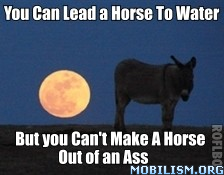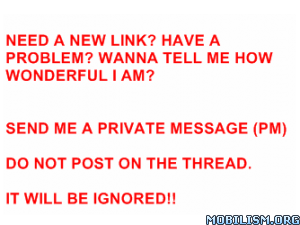Or perhaps publicity? The issue of eBooks and file-sharing (piracy!) is not as clear as some interested parties - authors, publishers - believe. Or would have you believe.
Before eBooks, readers always shared their favorite books with other like-minded readers; no one accused them of piracy for that act of sharing. The thought then was it was not a book stolen as much as a (new) reader gained. The advent of digital technology changes everything, though; now everyone can be a published author. Just like everyone can be a file-sharer. Which means publishing changes rapidly, too rapidly for some parties.
Cory Doctorow shares his thoughts...
Cory is not alone...
Your thoughts and comments welcomed.
Before eBooks, readers always shared their favorite books with other like-minded readers; no one accused them of piracy for that act of sharing. The thought then was it was not a book stolen as much as a (new) reader gained. The advent of digital technology changes everything, though; now everyone can be a published author. Just like everyone can be a file-sharer. Which means publishing changes rapidly, too rapidly for some parties.
Cory Doctorow shares his thoughts...
Giving away ebooks gives me artistic, moral and commercial satisfaction. The commercial question is the one that comes up most often: how can you give away free ebooks and still make money?
For me -- for pretty much every writer -- the big problem isn't piracy, it's obscurity. Of all the people who failed to buy this book today, the majority did so because they never heard of it, not because someone gave them a free copy. Mega-hit best-sellers in science fiction sell half a million copies -- in a world where 175,000 attend the San Diego Comic Con alone, you've got to figure that most of the people who "like science fiction" (and related geeky stuff like comics, games, Linux, and so on) just don't really buy books. I'm more interested in getting more of that wider audience into the tent than making sure that everyone who's in the tent bought a ticket to be there.
Ebooks are verbs, not nouns. You copy them, it's in their nature. And many of those copies have a destination, a person they're intended for, a hand-wrought transfer from one person to another, embodying a personal recommendation between two people who trust each other enough to share bits. That's the kind of thing that authors (should) dream of, the proverbial sealing of the deal. By making my books available for free pass-along, I make it easy for people who love them to help other people love them.
What's more, I don't see ebooks as substitute for paper books for most people. It's not that the screens aren't good enough, either: if you're anything like me, you already spend every hour you can get in front of the screen, reading text. But the more computer-literate you are, the less likely you are to be reading long-form works on those screens -- that's because computer-literate people do more things with their computers. We run IM and email and we use the browser in a million diverse ways. We have games running in the background, and endless opportunities to tinker with our music libraries. The more you do with your computer, the more likely it is that you'll be interrupted after five to seven minutes to do something else. That makes the computer extremely poorly suited to reading long-form works off of, unless you have the iron self-discipline of a monk.
The good news (for writers) is that this means that ebooks on computers are more likely to be an enticement to buy the printed book (which is, after all, cheap, easily had, and easy to use) than a substitute for it. You can probably read just enough of the book off the screen to realize you want to be reading it on paper.
So ebooks sell print books. Every writer I've heard of who's tried giving away ebooks to promote paper books has come back to do it again. That's the commercial case for doing free ebooks.
Now, onto the artistic case. It's the twenty-first century. Copying stuff is never, ever going to get any harder than it is today (or if it does, it'll be because civilization has collapsed, at which point we'll have other problems). Hard drives aren't going to get bulkier, more expensive, or less capacious. Networks won't get slower or harder to access. If you're not making art with the intention of having it copied, you're not really making art for the twenty-first century. There's something charming about making work you don't want to be copied, in the same way that it's nice to go to a Pioneer Village and see the olde-timey blacksmith shoeing a horse at his traditional forge. But it's hardly, you know, contemporary. I'm a science fiction writer. It's my job to write about the future (on a good day) or at least the present. Art that's not supposed to be copied is from the past.
Finally, let's look at the moral case. Copying stuff is natural. It's how we learn (copying our parents and the people around us). My first story, written when I was six, was an excited re-telling of Star Wars, which I'd just seen in the theater. Now that the Internet -- the world's most efficient copying machine -- is pretty much everywhere, our copying instinct is just going to play out more and more. There's no way I can stop my readers, and if I tried, I'd be a hypocrite: when I was 17, I was making mix-tapes, photocopying stories, and generally copying in every way I could imagine. If the Internet had been around then, I'd have been using it to copy as much as I possibly could.
There's no way to stop it, and the people who try end up doing more harm than piracy ever did. The record industry's ridiculous holy war against file-sharers (more than 20,000 music fans sued and counting!) exemplifies the absurdity of trying to get the food-coloring out of the swimming pool. If the choice is between allowing copying or being a frothing bully lashing out at anything he can reach, I choose the former.
Cory is not alone...
Piracy is yesterday's worry for today's 'artisan authors'
File sharing and self-publishing are becoming the norm for a generation of writers looking beyond a moribund publishing eco-system
Damien Walter
The community of SF writers has reason to dislike digital copying, or "piracy" as it's commonly labelled in the tabloid press. Genre writers exist, by and large, in the publishing mid-list, where mediocre sales might seem most easily eroded by the spectre of illegitimate downloads. SF, fantasy and horror are also the literature of choice for the culture of geeks most likely to share their favourite authors' works on torrent sites. Not surprising, then, that many professional genre writers and editors respond to the growing reality of copying with the absolutist position that piracy is theft, and should be punished as such under the law.
But SF writers are far from united in that position. Novelist, blogger and digital rights activist Cory Doctorow is well known for providing free digital copies of all his books as a marketing strategy, arguing that in a digital economy, obscurity is a far greater threat than piracy. Charlie Stross blogged such an effective argument against digital rights management on ebooks that it influenced at least one publishing imprint to drop DRM on its novels. And interviewed on the subject in 2011, Neil Gaiman, ever the gentleman, kindly points out that if you are a writer courting fans, screaming "THIEF!" at them and threatening legal action for copying might be … counterproductive.
Of course the easy response is that Doctorow, Stross and Gaiman are all successful writers who can afford to hold such opinions. But like most easy responses, it misses the fundamentals of the argument. Successful writers understand the marketplace they are working within, and they understand that digital copying and file-sharing, like all disruptive changes wrought by technology, create as many opportunities as problems. The digital economy operates on the model of the long tail, and copying is part of how a book or any digital creation moves up the tail. Copying and file-sharing are the internet's word of mouth – and as all good booksellers know, it's word of mouth that really sells books.
It's at the confluence of file-sharing and self-publishing that a new kind of "artisan author" is emerging. In his guide to self-publishing, Guy Kawasaki with co-author Shawn Welch coins the term APE: Author, Publisher, Entrepreneur. Kawasaki argues that by fulfilling all three roles, writers open tremendous new creative opportunities for their work that major publishers are too slow and cumbersome to meet. Self-published writer Huw Howey, whose collection of SF novellas, Wool, became an ebook bestseller before it was published by Century and the film rights bought by Ridley Scott, says that he and the pirates "are tight"; he loves his readers, "even the ones with eye patches". For a self-published author like Howey, downloads from torrent sites aren't a sale lost but a reader gained, the sites themselves not dens of piracy but places where people who are fans of cool stuff go looking for new cool stuff to be fans of. For the artisan author, self-publishing is a preference and file-sharing is an opportunity.
Creative control is the lure for the artisan author. Want to hand-make limited editions of your book and sell them on Etsy? You can. Want to find a kick-ass illustrator on deviantART to make your cover? You can. Want to set up a Kickstarter to fund the next volume of your epic fantasy saga? You can. Want to make a marketing deal with a sponsor who likes you brand? You can. Want to put copies of your book on Pirate Bay to find new readers? You can. The options open to artisan authors are huge, and the potential for creativity truly exciting. In the past, writers have relied on publishers to make these creative decisions for them, but the changes in digital publishing mean that many writers are not just creatively but financially better off either going it alone or negotiating new kinds of relationships with publishers.
If the rise of the ebook and the growth of file-sharing are a huge meteorite careening towards Planet Publishing, then the artisan authors are gambling on being the fast, adaptable mammals who will crawl out from the rubble of Random House and feast like cannibals on the dismembered careers of dying mid-list writers and their editors. If the artisan authors are right, then file-sharing is the least of the problems traditional authors face. They are tied to a publishing eco-system that may simply be too big and too slow to adapt to the extinction-level event of digital technology.
Your thoughts and comments welcomed.
I am on medical leave, away from home and my files. Please hold your re-upload requests for my return, ~15 May 2024.
Thank you.
Thank you.

